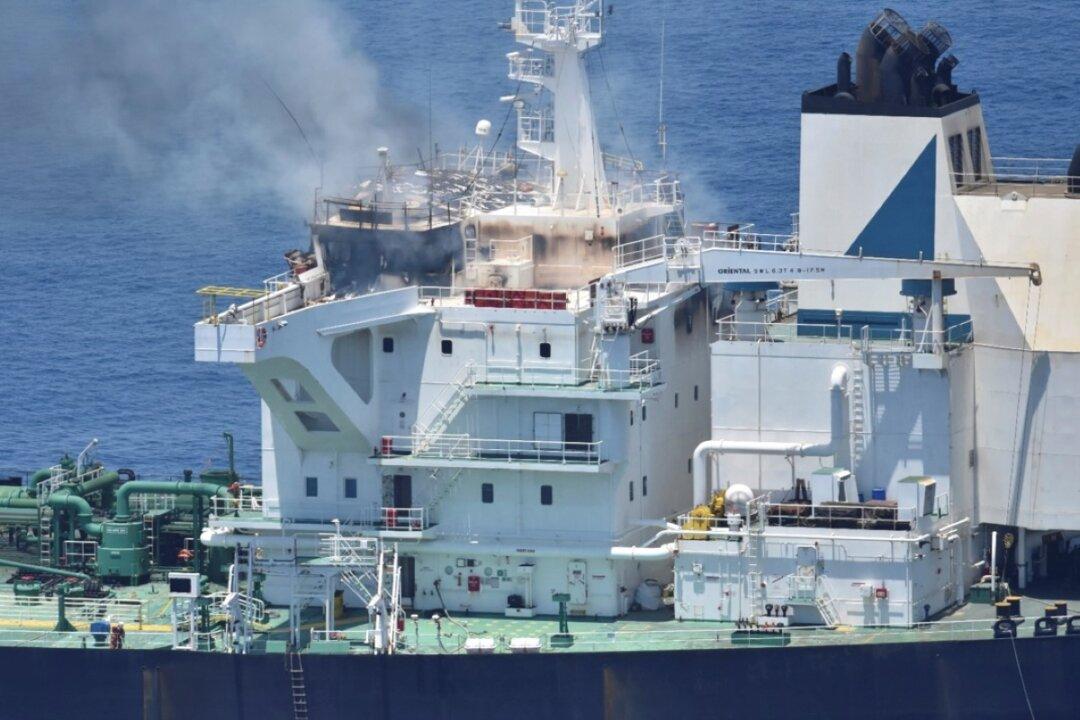International observers continue to monitor for signs of a major oil spill in the Red Sea after Houthi rebel forces struck a tanker vessel carrying more than a million barrels of crude oil in a recent explosive attack.
The Houthis, a U.S. designated terrorist group, claimed responsibility for striking the Greek-flagged MV Sounion on Aug. 21 as it transited the Red Sea. The Yemeni faction posted footage online last week, purporting to show the tanker being set ablaze.





